Description
ABSTRACT
Using Technology to Combat Crime in Nigeria: An Examination of Digital Intelligence Through the Lens of Privacy and Data Protection
Vanessa A. Obi*
Digital technologies have effectively and inevitably permeated every corner of the globe relating to individual, corporate and government businesses. With digital technologies, physical contacts in all human and corporate relations have been drastically reduced. Money can be moved from one continent to another by the mere pressing of buttons. Cyber-criminals do not need to travel – physically – before committing fraud and atrocities in territories thousands of miles away from their physical locations. Since criminal activities in the cyberspace do not require actual physical presence, there is a need for an online means to counter the activities of these forms of criminalities – especially in Nigeria, a developing country by all indices. Thus, this paper explores the use of artificial intelligence or predictive analytics in crime-fighting through online security operations to protect nations and businesses. Indeed, artificial intelligence and predictive analytics in advanced economies have helped in detecting and curbing virtual crimes of different proportions. Further, this paper examines the intelligence operations of security agencies that utilise digital technologies in tracking perpetrators via webs of personal data. This examination is analysed through the lens of the current global perception and interpretation of Data Privacy and Protection; and how this will help Nigeria improve its cybercrime fighting capacity and abilities.
Keywords: Digital Technologies, Cybercrime, Intelligence, Data Privacy.
INTRODUCTION
The internet has extended the reach of cybercriminals to every part of the globe, and both national and international laws have been updated to recognise and encompass a variety of cyber or digital crimes. Cyber or Digital crimes are committed using electronic and internet-connected channels such as computers, phones, tablets, et cetera.
The first laws to criminalise virtual crimes1 sought mainly to protect the integrity of government secrets and financial institutions, but over time, there has been a dramatic change in the intent of such laws, now that ordinary citizens, public and private entities or businesses could be victims of digital crimes. The exponential increase in virtual crimes will be better appreciated when contrasted with the occurrence of traditional crimes like theft, assault, and murder. In 2019, the USA Federal Bureau of Intelligence (FBI) reported that “the number of cybercrime complaints from both individuals and business organisations reached a staggering 467,361. The total losses resulting…
*LL.B (University of Kent), LL.M (Queen Mary University of London), BL. Researcher and Legal Counsel, Alliance Law Firm.
- Computer Fraud and Abuse Act 1986 (CFAA), 18 U.S.C. § 1030, Convention on Cybercrime, Budapest 23.XI.2001 (ETS 185), Federal Information Security Management Act of 2002 (FISMA), Financial Services Modernization Act 1999 (Gramm–Leach–Bliley Act (GLBA)).

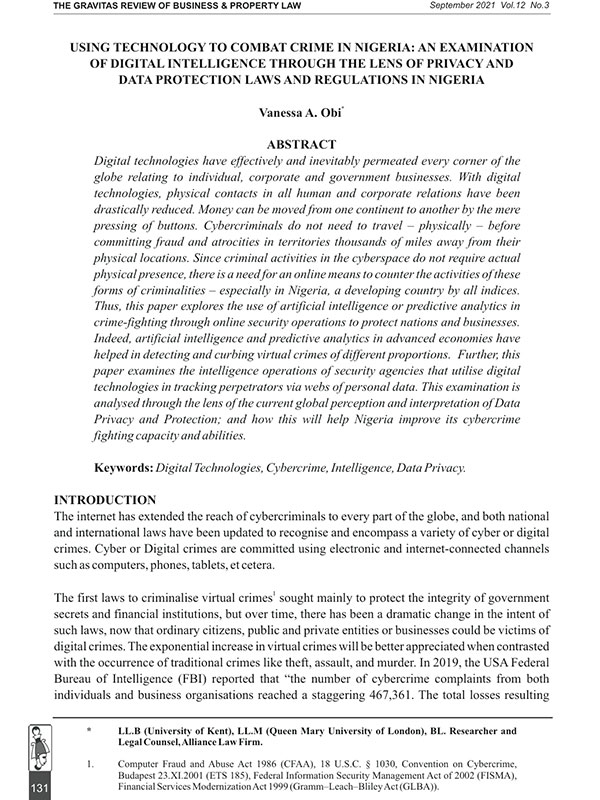
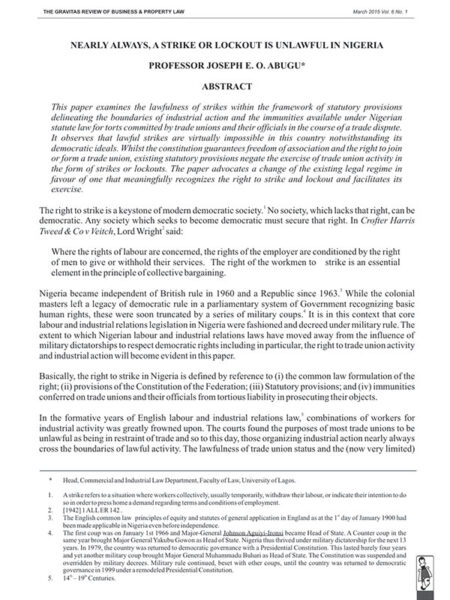
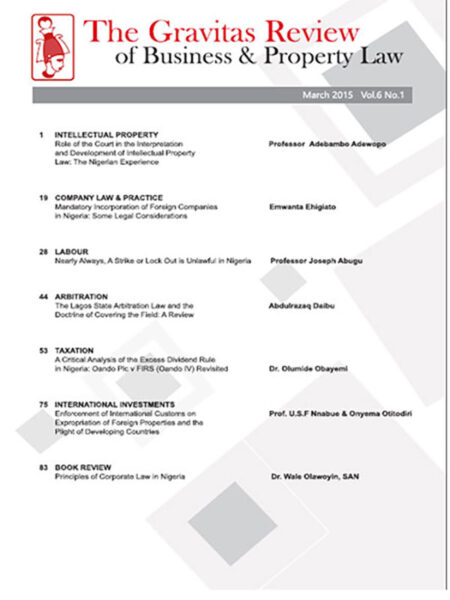
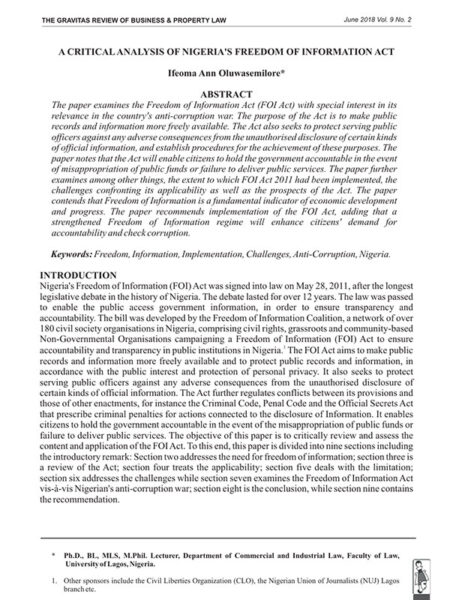
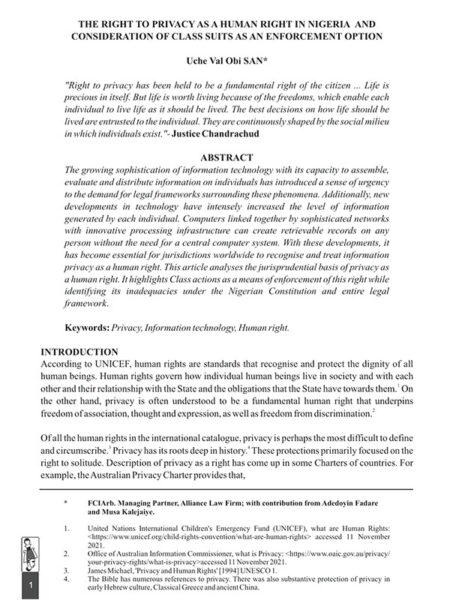


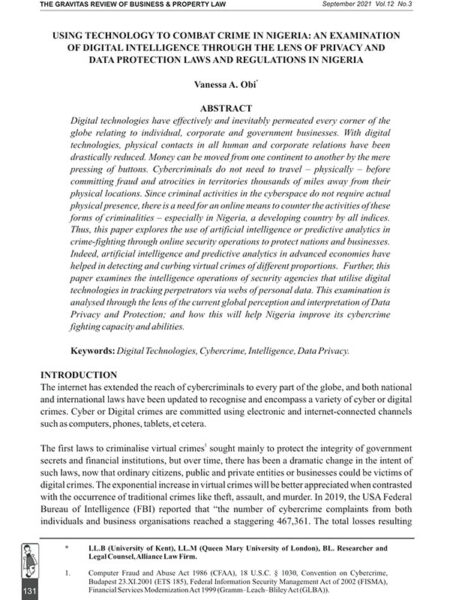
Reviews
There are no reviews yet.